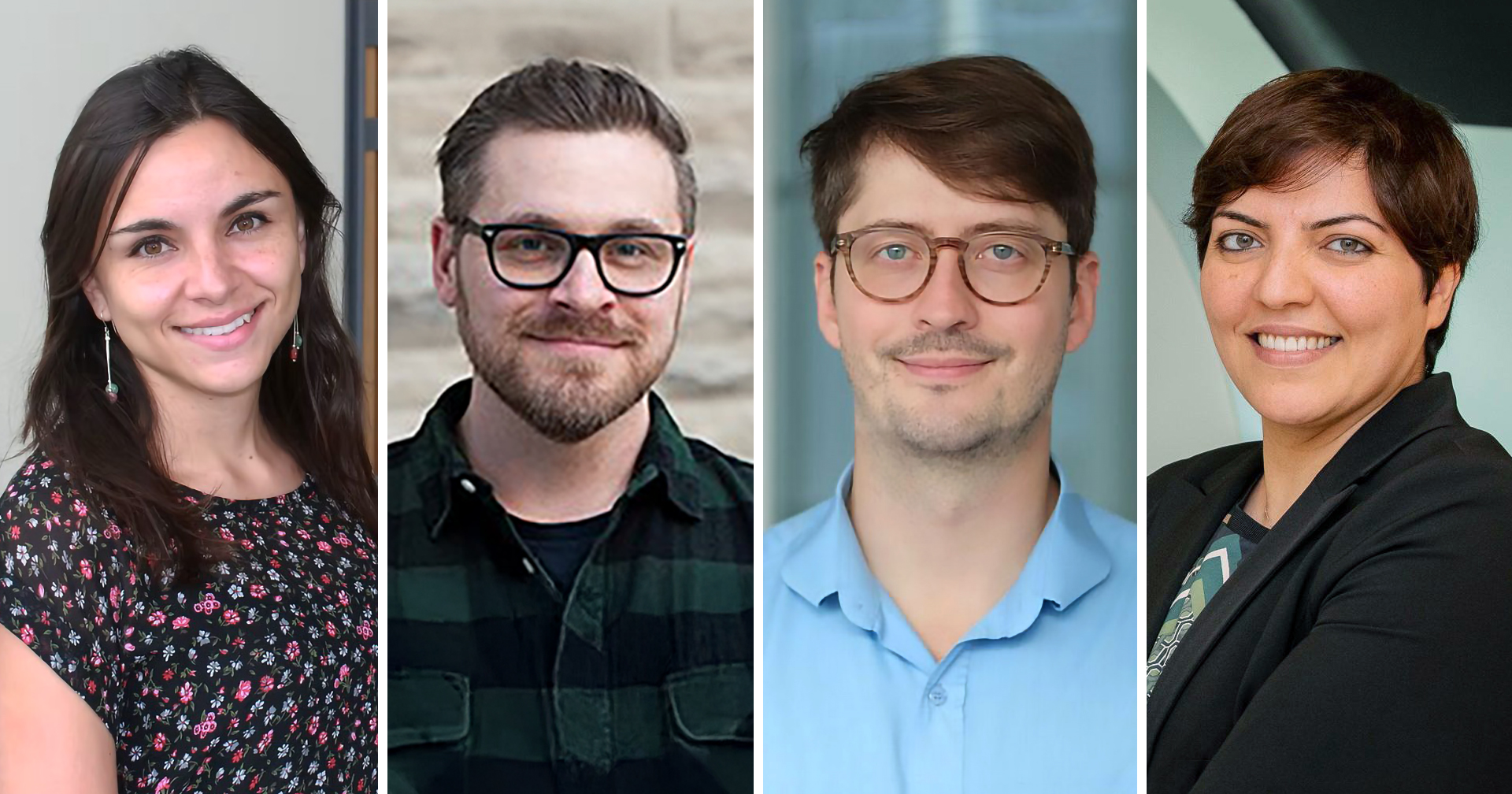Lifestyle
Four Researchers Awarded $100,000 Grants to Tackle Ontario Challenges

Four early-career researchers from Western University in Ontario have been awarded the Early Researcher Awards (ERA) by the provincial government. The recipients—Liliana Alvarez, Thomas DeFalco, Yalda Mohsenzadeh, and Lyle Muller—are recognized for their innovative projects aimed at addressing critical challenges in the province. Each winner will receive $100,000 over five years, with an additional $50,000 in funding from Western University to support their research endeavors.
The ERA program selects recipients based on the quality of their research proposals, their excellence in scientific inquiry, and their ability to cultivate new talent. The funding is designed to equip promising researchers with access to advanced technologies and the resources necessary to build effective research teams.
Research Focus Areas
Liliana Alvarez is a professor in the School of Occupational Therapy within the Faculty of Health Sciences. She directs the i-Mobile Driving Research Lab, focusing on the complex factors that impact the mobility of at-risk populations. Her research specifically addresses the alarming rise in driving under the influence of cannabis (DUIC) among young Canadians, who are significantly overrepresented in drug-related enforcement statistics.
Alvarez aims to investigate the experiences of these youth through a collaborative board of young people. “By focusing on the individual and social DUIC determinants of racialized Ontario youth that were previously overlooked, my findings will inform future collaborative youth-led DUIC interventions,” she stated. Her work aspires to develop strategies that effectively combat cannabis-impaired driving while avoiding stigmatization.
In the Faculty of Science, Thomas DeFalco leads the DeFalco Lab, where he studies how plants respond to environmental stimuli at the molecular level. His research involves receptor kinases (RKs), which are crucial for plant development and stress responses.
DeFalco’s work seeks to uncover the signaling mechanisms that follow RK activation, aiming to improve crop traits related to stress tolerance and disease resistance. “We seek to identify novel components and engineer improved stress tolerance and disease resistance in crops, addressing critical issues in agriculture and food security,” he said.
Also in the Faculty of Science, Yalda Mohsenzadeh heads the Cognitive Neuroscience & Artificial Intelligence Lab. Her research focuses on understanding the mechanisms behind image memorability, critical for developing innovative strategies in dementia care. Ontario is projected to see a staggering 202 percent increase in dementia cases from 2020 to 2050, translating to approximately 2.9 million new cases.
By integrating advanced artificial intelligence with cognitive neuroscience, Mohsenzadeh aims to decode the brain signals associated with memorable images. “The surge in dementia cases highlights the urgent need for advanced research into human memory and innovative solutions to tackle this public health crisis,” she explained. Her findings could enhance not only dementia care but also educational tools and overall mental health outcomes.
Collaborative Approaches in Neuroscience
Lyle Muller, a professor in the Department of Mathematics, leads the Fields Institute Lab for Network Science. His research examines how spatiotemporal patterns of brain activity influence perception, thought, and memory formation.
Muller draws an analogy between the human brain and a network of cities, each representing different memory aspects. His recent findings indicate these “cities” activate in complex waves rather than simultaneously, critical for memory retention. Collaborating with neurologists and neurosurgeons at London Health Sciences Centre, Muller’s team studies brain activity in participants navigating virtual reality environments.
The research employs innovative computational algorithms to map brain waves in detail. Muller believes this collaborative effort will position both Western University and LHSC as leaders in computational neuroscience, while also contributing to Ontario’s growing neurotechnology sector. “Both the applications of this research and the training of highly qualified personnel during this work will directly benefit Ontario’s knowledge economy,” he noted.
These four researchers exemplify the dynamic potential of early-career scientists in Ontario, demonstrating a commitment to addressing significant societal challenges through innovative research. Their projects not only aim to advance academic knowledge but also seek to improve the quality of life for Ontario residents.
-

 Science3 months ago
Science3 months agoToyoake City Proposes Daily Two-Hour Smartphone Use Limit
-

 Top Stories3 months ago
Top Stories3 months agoPedestrian Fatally Injured in Esquimalt Collision on August 14
-

 Health3 months ago
Health3 months agoB.C. Review Reveals Urgent Need for Rare-Disease Drug Reforms
-

 Technology3 months ago
Technology3 months agoDark Adventure Game “Bye Sweet Carole” Set for October Release
-

 World3 months ago
World3 months agoJimmy Lai’s Defense Challenges Charges Under National Security Law
-

 Lifestyle3 months ago
Lifestyle3 months agoVictoria’s Pop-Up Shop Shines Light on B.C.’s Wolf Cull
-

 Technology3 months ago
Technology3 months agoKonami Revives Iconic Metal Gear Solid Delta Ahead of Release
-

 Technology3 months ago
Technology3 months agoApple Expands Self-Service Repair Program to Canada
-

 Technology3 months ago
Technology3 months agoSnapmaker U1 Color 3D Printer Redefines Speed and Sustainability
-

 Technology3 months ago
Technology3 months agoAION Folding Knife: Redefining EDC Design with Premium Materials
-

 Business3 months ago
Business3 months agoGordon Murray Automotive Unveils S1 LM and Le Mans GTR at Monterey
-

 Technology3 months ago
Technology3 months agoSolve Today’s Wordle Challenge: Hints and Answer for August 19









